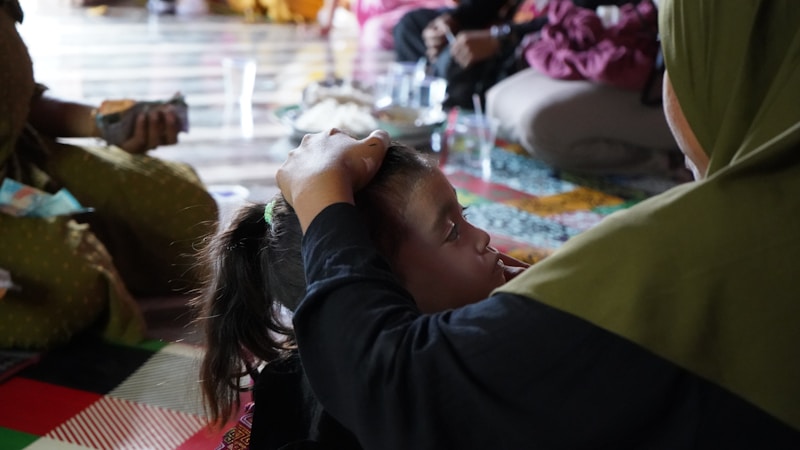Exploring Heritage and Identity in Weddings: A Cultural Connection
Introduction
Weddings are a profound celebration, not merely a union of two individuals but also a rich tapestry woven from the threads of heritage and identity. Different cultures come together in this joyous occasion to express love, familial ties, and community. In this article, we will delve into the intricate relationship between heritage, identity, and weddings, alongside key elements that highlight this unique bond.
The Significance of Heritage in Weddings
Heritage plays a pivotal role in shaping the customs and traditions observed during weddings worldwide. Each culture brings its own unique practices and rituals that reflect history, beliefs, and shared values. For instance, in Indian weddings, the ceremonial rituals, including the more famous "Saptapadi" or the seven vows, depend heavily on ancient traditions. This highlights how the identity of the couple and their families is deeply intertwined with cultural customs.
Types of Heritage That Influence Weddings
| Cultural Heritage | The practices, rituals, and ceremonies observed in weddings dictated by a specific culture. |
| Religious Heritage | Beliefs and traditions related to religious teachings that influence wedding ceremonies, such as Christian, Hindu, Jewish, or Muslim weddings. |
| Family Heritage | Familial customs passed through generations, influencing how weddings are organized and celebrated. |
Identity: A Reflection in Weddings
Identity serves as a mirror reflecting personal history, beliefs, and values. Weddings often allow individuals to express their identities openly, showcasing who they are amidst the backdrop of their heritage. For instance, a wedding in a multicultural environment may represent intricate layers of identity as couples blend traditions from different backgrounds. This interplay of identities comes alive when families incorporate diverse traditions, as seen in American weddings that may include both traditional marriage vows and unique personal ceremonies such as handfasting or unity candles.
Cultural Fusion in Modern Weddings
As globalization transforms the world, many couples are embracing cultural fusion in their weddings. This fusion creates hybrid ceremonies that respect and honor both partners' heritages. An example of this is a couple who incorporates Indian henna art into their ceremony while also embracing Western traditions like the white wedding dress. Such ceremonies promote understanding and appreciation for different heritages and identities.
Key Elements of Heritage and Identity in Weddings
Several essential components emphasize the presence of heritage and identity in weddings:
- Attire: Outfits often represent cultural heritage and personal identity. Traditional garments, from the Thai "Chut Thai" to the Scottish "Kilt," showcase pride in one's heritage.
- Rituals: Customs such as the Chinese tea ceremony or Jewish "Breaking of the Glass" highlight religious beliefs and familial ties.
- Music and Dance: The soundscape of a wedding often features cultural music, from the joyous rhythms of African drums to the melodic sounds of a classical string quartet, encapsulating both the heritage and the joyous celebration.

Challenges in Incorporating Heritage and Identity
While the merging of heritages can enrich a wedding, it may also present challenges. Couples face pressure to meet familial expectations and navigate cultural differences. Clear communication between partners about their wishes, values, and expectations is essential. Establishing a mutual understanding can help couples create a ceremony that honors both identities, enhancing the significance of their union.
Common Questions About Heritage and Identity in Weddings
As we explore the intricate relationship between heritage and identity, readers often have questions. Here are a few commonly asked inquiries:
- How can I incorporate both partners' heritages in the wedding without offending either side? Communicate openly with both families to understand the significance behind customs, finding ways to blend or honor both traditions respectfully.
- What if our families have conflicting traditions? Aim for compromise. Perhaps compromise could look like incorporating elements from each tradition in different parts of the ceremony.
- Can we create a new tradition that reflects both of our identities? Absolutely! Creating your new custom allows you to blend heritages while making the day uniquely yours.
Conclusion
The importance of heritage and identity in weddings cannot be overstated. As couples navigate their journeys, they discover ways to honor their backgrounds while expressing their individuality. Whether it's through attire, rituals, or the choice of music, weddings become a powerful platform for showcasing cultural richness and celebrating unity. In navigating the complexities of familial expectations and varying traditions, couples can weave together their identities in a manner resonate with both their families and themselves, ensuring a memorable day that echoes with deep cultural significance.
When planning a wedding, remember to honor the heritage and identity of both partners. Consider involving family members in discussions about traditions, but also make room for personal preferences. Your wedding should reflect who you are as a couple, celebrating both your unique identities together in a harmonious blend of love, culture, and tradition.